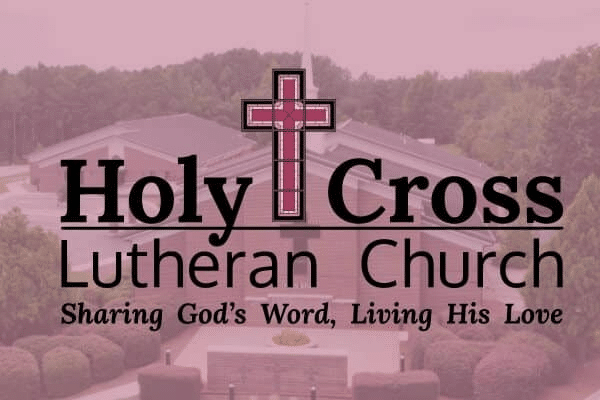
Luke 11:1-13
July 27, 2025
One thing I really enjoy doing is having a conversation with people over a meal. It’s a great way to get to know people, to discuss the issues of the day, and to support and encourage one another. Jesus often did this throughout His earthly ministry. Whenever He was building a relationship with people it was usually through conversation at a meal. That’s one of the many reasons why we offer meals here at our church on Wednesday evenings during the school year, to build relationships and to encourage one another through conversation. I believe one of the key ingredients in being a good conversationalist is being able to maintain a balance between talking and listening. I definitely experienced this last week as Rebekah and I, along with 3 other adults, spent 6 days in New Orleans with 17 of our high school students at our denomination’s National Youth Gathering. I had a great time talking with our youth, but I learned a lot from them when I simply listened to them. Listening is an important part of our relationship with Jesus. What we have to say is never quite as important as what our Savior has to tell us in His Word. But our relationship involves conversation, which means there is talking and listening, and the best way for us to engage in this conversation with God is through prayer. And let me tell you, praying with over 20,000 Lutheran students in the New Orleans Superdome last week was a powerful conversation with God.
In our Gospel lesson for today Jesus has just finished praying in a certain place when the disciples ask Jesus, “Lord, teach us pray.” What I find curious about that request is these 12 disciples had been with Jesus for about 2 years, and during that time with Jesus they had seen Him bring a person who had died back to life, they saw Him calm a huge storm, they heard His teachings, and they saw Him feed over 5000 people with just 5 loaves of bread and 2 fish. And yet, as far as we know, they never came to Jesus and asked, “Lord, the way you calmed that
storm was awesome, teach us how to do that.” Or, “I don’t know how you fed those 5000 people, but can you teach us how to do that in case we get in a bind in the future?” Out of all the things they had seen Jesus do, they asked Him, “Lord, teach us how to pray.”
Why would they ask what appears to be such a simple question? Here they are with the very Son of God, who was there at the creation of the universe, who had performed all sorts of miracles right before their eyes, and they ask Him, “Lord, teach us to pray.” Isn’t that something they should have learned from their parents or from others in the temple growing up? Did they just not know what words to use? We go through that in our lives, don’t we? Sometimes we just don’t know exactly what to say when we pray. Their request, though, indicates that prayer is not a natural thing. It doesn’t “just happen.” It’s something that has to be taught.
One of the things that may have motivated the disciples to ask Jesus about prayer was that they saw Him do it quite often. He prayed on everyday occasions. As Jesus was ministering to the crowds by teaching, preaching, and healing, He would often go off by Himself afterward and spend hours talking with His heavenly Father. He also prayed on special occasions, such as when He was baptized, before He chose His 12 disciples, when He was transfigured on top of a mountain, and when He fed the 5000. He even prayed for others as He hung on the cross. I think the disciples wanted to learn about prayer, because they saw how important it was to Jesus, how much a part of His life it was on a daily basis.
However, I don’t think the disciples were looking to simply imitate Jesus. I think the disciples saw in Jesus a closeness to God through prayer that they did not see anywhere else, and they wanted that closeness for their own lives. So Jesus begins by teaching them what has become known as the “Lord’s Prayer,” and in this prayer what Jesus is doing is He is giving the disciples a “prayer pattern” for them to follow. How often in our lives do we follow a pattern or set of directions when we’re not sure how to do something? The Lord’s Prayer provides a nice set of directions for them, and all of
us, on what to say in any situation. It’s a “model prayer,” and in this model prayer Jesus wants them and all of us to know that we can call God, “Father,” meaning we are His children and we are dependent on Him, just as children are dependent on their earthly parents.
The Lord’s Prayer also addresses all of the basic problems we face in our lives. Problems such as worry, guilt, confusion, strained relationships, temptations, fears, and many others. In fact, not only is this prayer a wonderful model for praying, it also serves as a great pattern for living. That’s one reason why we pray this prayer on a regular basis in our worship services. But in doing so, one of the challenges this leads to is: How often do we speak the words of the Lord’s Prayer without even thinking about what we are saying? If I’m having a conversation with you and it appears that I’m not even paying attention to what you are saying or what I’m saying, how would that make you feel? How do you think it makes God feel?
After giving His disciples this model prayer, Jesus goes on to tell them a story about a traveler who stops at a friend’s house one evening and asks for bread. At first the request is refused, because the friend doesn’t want to disturb his family while they sleep trying to get some bread, but the traveler is persistent and sooner or later the request will be granted – if for no other reason, so that the friend’s family will be left alone.
The point of the story is not that we are “bothering” God when we pray to Him and that if we are persistent God will finally give us whatever we want. The persistence of the traveler means that we should never be ashamed or embarrassed to ask God for anything, because God is more than a friend to us. He is our loving Father.
This also means that prayer is a relationship with God, it helps to form our relationship with God. Think of a child who sits in their dad’s lap and asks for something and won’t stop until dad promises to do it. A child puts great trust in a parent, especially when that parent says in response to a request, “I promise.” Jesus goes on to explain that God promises to answer all of our
prayers and He will always give us exactly what we need. After all, Jesus explains at the end of our Gospel lesson that if an earthly father would give good gifts to his son when he asks, then surely your Heavenly Father will give good gifts to you when you ask, seek, and knock.
A good example of this is seen in our Old Testament lesson from Genesis 18. Abraham is talking with God and he starts to haggle with Him – not to get something for himself, but because he is so comfortable in his relationship with God that he feels free to ask for exactly what he wants. Abraham knows God well enough, how He loves people, that he is willing to share with God his concern about a few of the believers in the city of Sodom who might die because of the sins of others. God responds to Abraham saying, “If there are just 10 righteous people in the city of Sodom, I will not destroy it.” God and Abraham understood each other, because they had a relationship and communicated with each other on a very personal level.
The God of all creation wants to have a relationship with you through daily prayer. He loves you, He knows what you need, and wants to hear from you because you are His child. He created you and died for you, and He always has time for you. I guarantee every parent or grandparent was anxious to hear from their child/grandchild about the Youth Gathering when they returned from New Orleans. And that’s how anxious God is to hear from us on a daily basis. Remember the old phrase, “practice makes perfect?” As often as we practice our prayers, God’s promise is to be with us and to answer every one of our prayers, no matter how great or small they may be to us. And who knows, maybe by practicing our prayers among our family and friends, we may be helping them to grow in their relationship with God. Prayer is a conversation that involves talking and listening. So let us all go out today and this week and make it a point to be good conversationalists with God.


